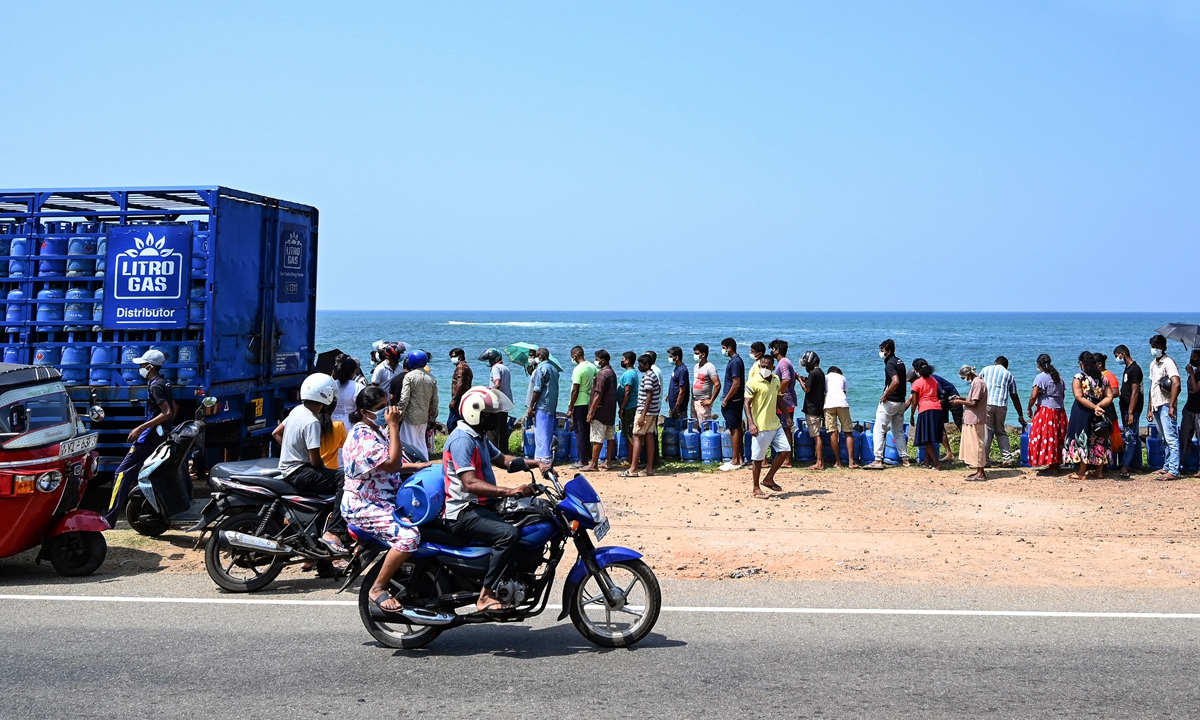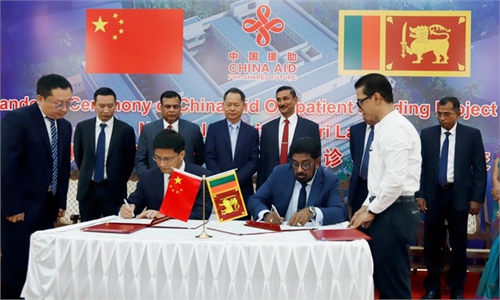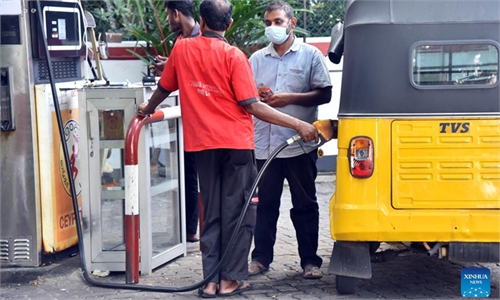Sinopec signs 20-year deal with Sri Lanka to supply fuel to meet local market demand

People queue up to buy liquefied petroleum gas cylinders in Rathgama, Sri Lanka on March 27, 2022. Photos: AFP
Chinese oil giant Sinopec signed an agreement with Sri Lanka that allows the company to operate for the next 20 years to import, store, distribute and sell petroleum products in Sri Lanka, China's Embassy in Sri Lanka said on Monday.
Sinopec will be able to use 150 existing fuel stations and it has the right to develop 50 new stations, according to the embassy statement.
The Presidential Secretariat of Sri Lanka said that it is a significant move to address the country's fuel supply challenge, and the agreement marks a crucial step in ensuring a steady and uninterrupted supply of fuel in Sri Lanka.
Sri Lanka's Secretary of the Ministry of Power and Energy M.P.D.U.K. Mapa Pathirana and Chen Chengmin, managing director of the fuel production and marketing department of Sinopec, signed the agreement in the presence of Sri Lanka's President Ranil Wickremesinghe.
Sinopec and its affiliated companies are set to commence operations in Sri Lanka within 45 days after obtaining the license. The development brings hope for a more stable and reliable fuel supply, boosting the country's energy sector, which will aid consumers, the Presidential Secretariat of Sri Lanka noted.
In response to the foreign exchange crisis in Sri Lanka, the Ministry of Power and Energy invited some reputable petroleum companies to ensure an uninterrupted fuel supply to local consumers, as its own two petroleum suppliers face challenges with the inability to provide sufficient foreign exchange for fuel shipments, according to the Presidential Secretariat of Sri Lanka.
One key requirement for new retail suppliers entering the market is their ability to secure foreign exchange without depending on Sri Lanka's banking sector. It was mandated that the companies source their own funds for fuel procurement through foreign sources, at least during the initial one-year period of operation, the Presidential Secretariat of Sri Lanka said.
"Sinopec is a state-owned enterprise in China, which has great advantages in oil resource allocation, infrastructure and financial support.
"As the company is able to use its own funds for fuel procurement, the entry into the Sri Lankan oil market will safeguard local oil supplies and alleviate Sri Lanka's foreign exchange challenges," Dong Dengxin, director of the Finance and Securities Institute of the Wuhan University of Science and Technology, told the Global Times on Tuesday.
Sri Lanka approved a proposal in March to liberalize the retail fuel market, with more players from China, Australia and the US. On April 26, a team of officials from Sinopec visited Sri Lanka to finalize the agreements and commence the operations for retail fuel sales, local media outlet Ada Derana reported.
The security of employees and property are the most important issues for a company that operates overseas. The local government should have a basic guarantee in this regard, and it is also the government's responsibility and obligation to foreign enterprises, Dong noted.
Global Times


